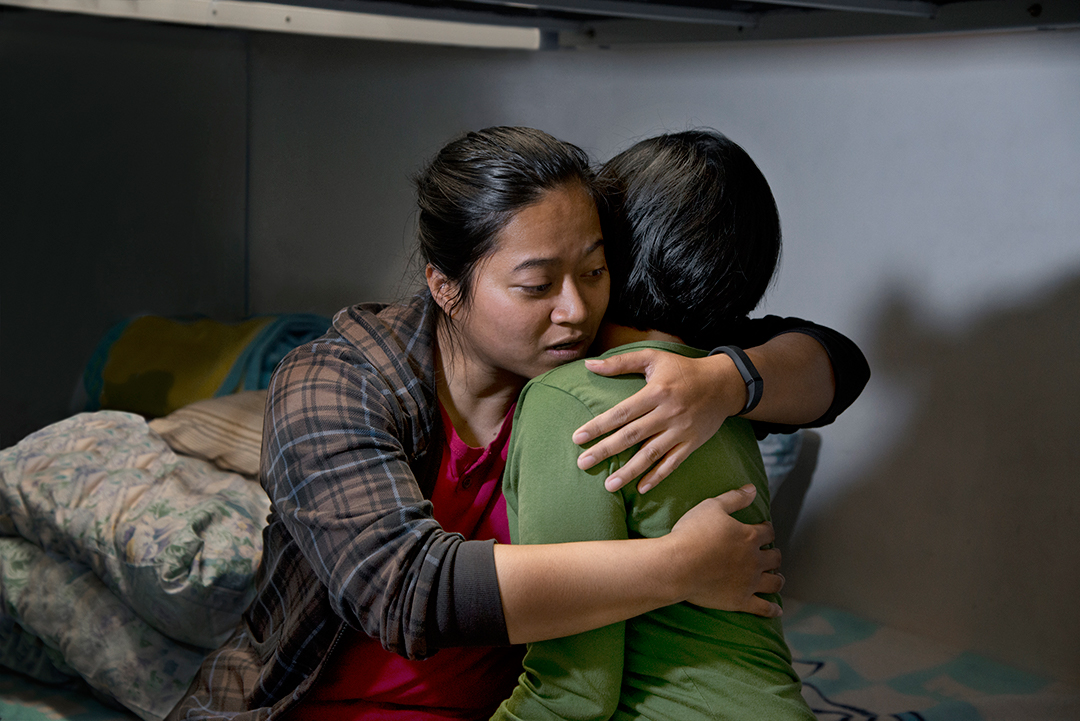
Sring went to Hong Kong as a domestic worker in 2002 because she had a sister there who said it was a good place for “women like us”—women in poverty. After finishing high school in East Java, Indonesia, Sring found a hotel housekeeping job in Sumatra. Her wages were always low. So she did as her older sister suggested and went to work in Hong Kong. But her salary was less than the minimum wage required by law and she had to give it all to the recruitment agency for the first six months. She was not allowed the weekly day off or public holidays, even though they also are required by law. She asked her sister about making a complaint, but her sister said it would only make life more difficult for her. When her contract ended, Sring changed to a new employer who honoured the weekly day off and other holidays. Suddenly, on her days off she was meeting other workers and learning about opportunities.
She joined the Indonesian Migrant Workers Union and in 2007 became a team leader in advocacy and training other workers about their rights. In 2009 she became the union’s chairperson. She still cleans and cooks for a Hong Kong family, but when an Indonesian worker is in trouble, Sring is typically the first person who is called. She also travels abroad to discuss domestic workers’ rights. While she thinks the Hong Kong model is not the best in practices, she also thinks it has many strengths to be copied in every country, such as a complaints process, a mandatory day off and freedom for workers to organize. She also thinks more governments should follow the example of Thailand, which allows migrant domestic workers to process their work contracts directly with their employer and avoid recruitment agencies.
***
“In Indonesia it was very difficult to find a good job. I worked in a hotel in cleaning and the salary was very low. My sister was in Hong Kong and said I better go to Hong Kong, that ‘it’s a good place for people like us’.
“My first contract was just to clean the house, cook and go to market. I was underpaid—I only got HK$2,000 but my salary should be HK$3,670. But the agency fee was HK$2,000 for six months. I didn’t get any day off or public holiday at first. When I finished paying the agency fee, I got a day off once a month.
“I tried to complain. When I asked my sister how to do it, she said, ‘Oh, it makes you more difficult in your life. You’re still new. If you try to complain you need to pay a high agency fee again.’ I was unhappy because I really wanted to change my employer. My friends had one day off a week. I had the same job as them but I was underpaid all two years. When my contract ended I changed to new employers and still had to pay a high agency fee because I didn’t know the regulation that it’s only 10 percent from the first month’s salary. At that time I had to pay HK$6,000.
“With the second employer, I had a day off every week and public holidays. So I had more time on Sundays and I saw so much activity in the Victoria Park by the Indonesian Migrant Workers Union. I became active in the organization and volunteered to teach the guitar with members. Then in 2007 I joined the Team Work to handle advocacy and education. In 2009 I become chairperson of the IMWU.
Solutions in place that really help
“Governments should give migrant domestic workers the freedom to process their contract and to avoid reliance on an agency. In Thailand, domestic workers can process their contract without an agency.
“Governments must provide a system for making complaints, informing migrant workers of their rights and access to justice if they have case like sexual harassment or physical abuse. The Hong Kong government has a division in the Labour Department to receive complaints or you can go to the Labour Tribunal.
“In the United States and in Europe, they have standard working hours, which is useful for migrant domestic workers to enjoy themselves, learn more and empower themselves. If a government set working hours and didn’t force domestic workers to live in, then the government would better promote the safety and health of migrant workers.
“And when their document is confiscated by the agency, they are afraid to run away from the employer. There needs to be a regulation against an agency or employer taking a worker’s passport.
“To help protect workers from physical abuse, you need to educate migrant workers on how to understand the laws in their workplace. This will give them more confidence to speak up regarding their working conditions. I see that when migrant workers don’t know the law, they’re really scared to report their problems. They don’t know that they have rights.
“Educating workers is so important because when we have a problem it’s only ourselves who can help us, at least in the beginning.”
